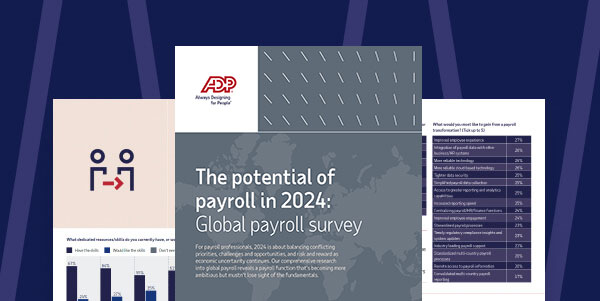Despite global uncertainty and supply chain disruptions, many companies are looking to expand internationally, but which countries to consider is a difficult question. So many things will affect that decision, such as industry sector, current locations and size of the company.
Shifts in global marketplaces and rapid acceleration of new technology adoption mean that opportunities are ripe for the picking for companies with an appetite for growth.
So, where are these opportunities? And what does business expansion mean for payroll and HR?

Where companies are investing globally
According to the International Monetary Fund (IMF), its Coordinated Direct Investment Study pointed out that global foreign direct investment surged in 2023, climbing to a record $41 trillion.
And some things haven’t changed. The United States continues to lead as the top investment destination, with large gains also seen in Singapore, Germany and emerging markets like India, Mexico and Brazil. In fact, these three emerging economies experienced the largest increases since 2009, each one seeing growth of around $130 billion — a significant rise.
What has changed is European countries like the Netherlands and Luxembourg who saw declines. Despite this, they remain top contenders alongside the U.S., China and the UK. 1
So where is the big money going? As new tech innovations like AI take off, companies aren’t only exploring new markets, they’re also using cutting-edge technology to get ahead. This shift in approach means businesses need to strike a balance between seizing opportunities and managing risks. Simply put, staying flexible and forward-thinking is key to success.
And the payroll and HR challenges?
Each market presents its challenges, but any organisation considering setting up business in a new country will have to consider:
- Labour laws, tax regulations and government incentives
- Ease of registering a business
- Cultural considerations
- Economic outlook and political stability
- Access to the right people
Chief concerns for HR executives entering new markets are recruiting suitably skilled staff and management and compliance with employment laws and customs. These concerns may be holding back the pace of international expansion, but there are other challenges that companies only discover when it’s too late — complications that arise because they’re not ready to go into a new market.
There tend to be two categories of payroll pitfalls to avoid when expanding overseas: systems and preparation. These are easy to avoid if you have the right technology and payroll partner.
-
Ensure you have the right payroll and HR systems
- Maintaining systems from multiple providers increases the chance of payroll inaccuracy and makes it more difficult to access usable data
- Check your data security — as hackers grow increasingly sophisticated, you need to review how sensitive information is stored and transferred
- Some companies still use spreadsheets that are not secure and have no automatic versioning control
-
Never underestimate the importance of knowledge and preparation
- You need to determine your legal structure and possibly apply for a specific legal, taxable status in the country (this could be done by registering a subsidiary, branch or holding company, or by using an employer of record), without which you may incur higher taxes and face significant liabilities
- You should conduct comprehensive requirements review to ensure your HR teams have a full understanding of the new country’s labour laws and additional requirements (anything from visa classifications to meal vouchers)
- Check that employees’ contracts are drafted correctly, not forgetting to ensure that they’re in line with a country’s collective bargaining and union expectations
Careful preparation and research, including finding a payroll provider with a combination of global coverage and a deep understanding of local laws, will smooth your way into new markets and help avoid any pitfalls. Once you’ve done your homework, assuming you’ve also standardised your processes and systems, you should be set for success.
Download our guide to ‘Payroll and HR compliance challenges around the world’ to learn about some of the payroll compliance pitfalls in different geographies.




